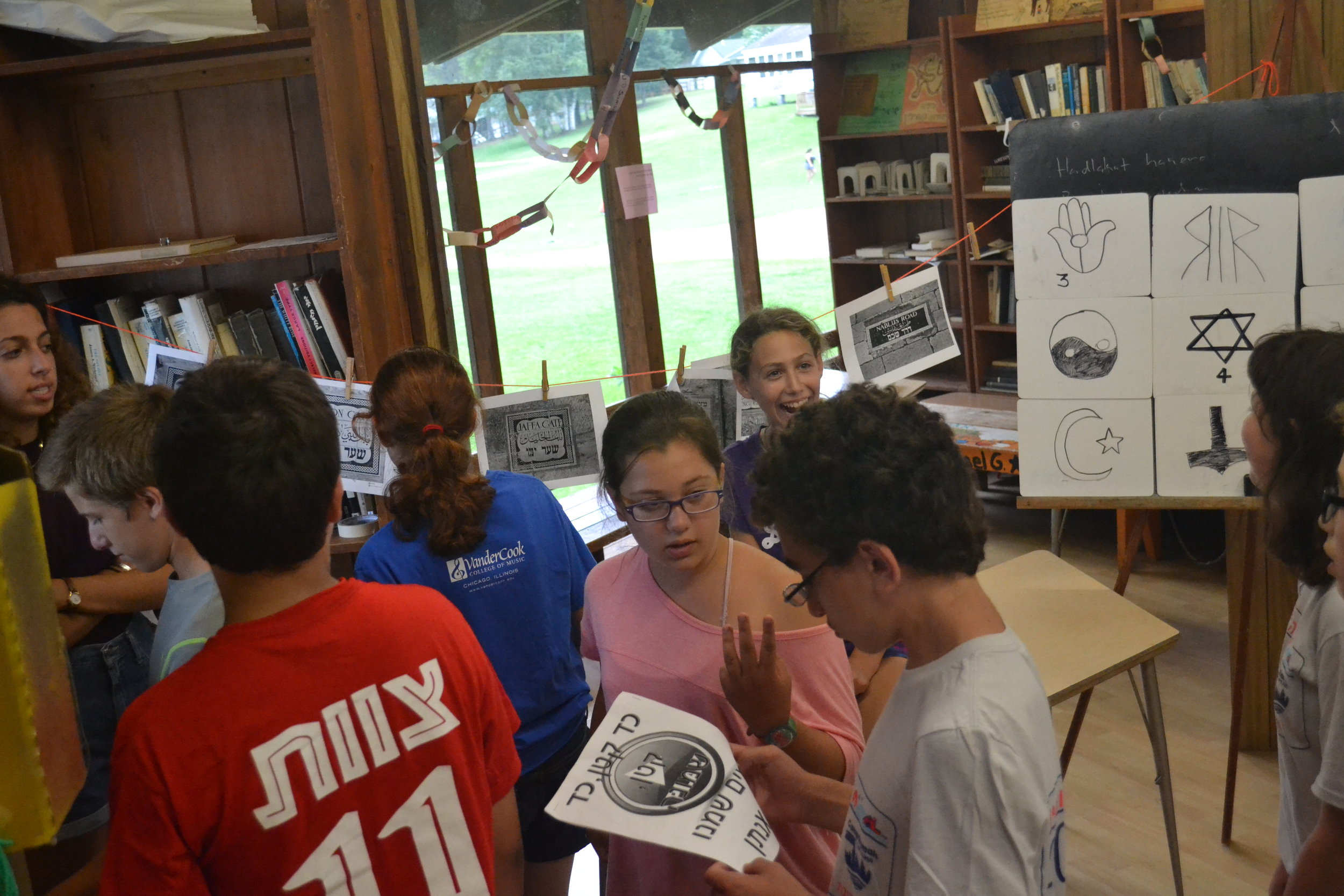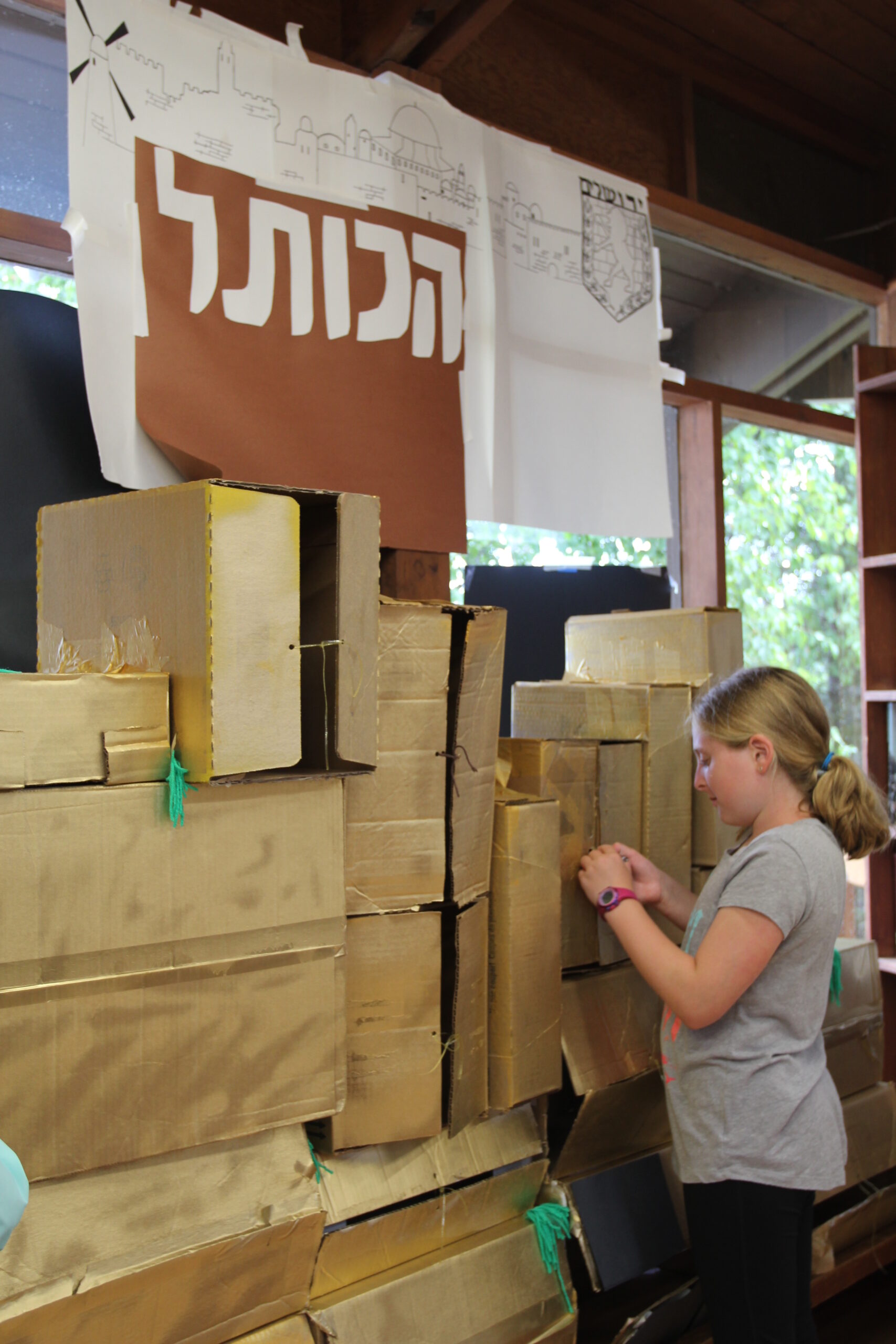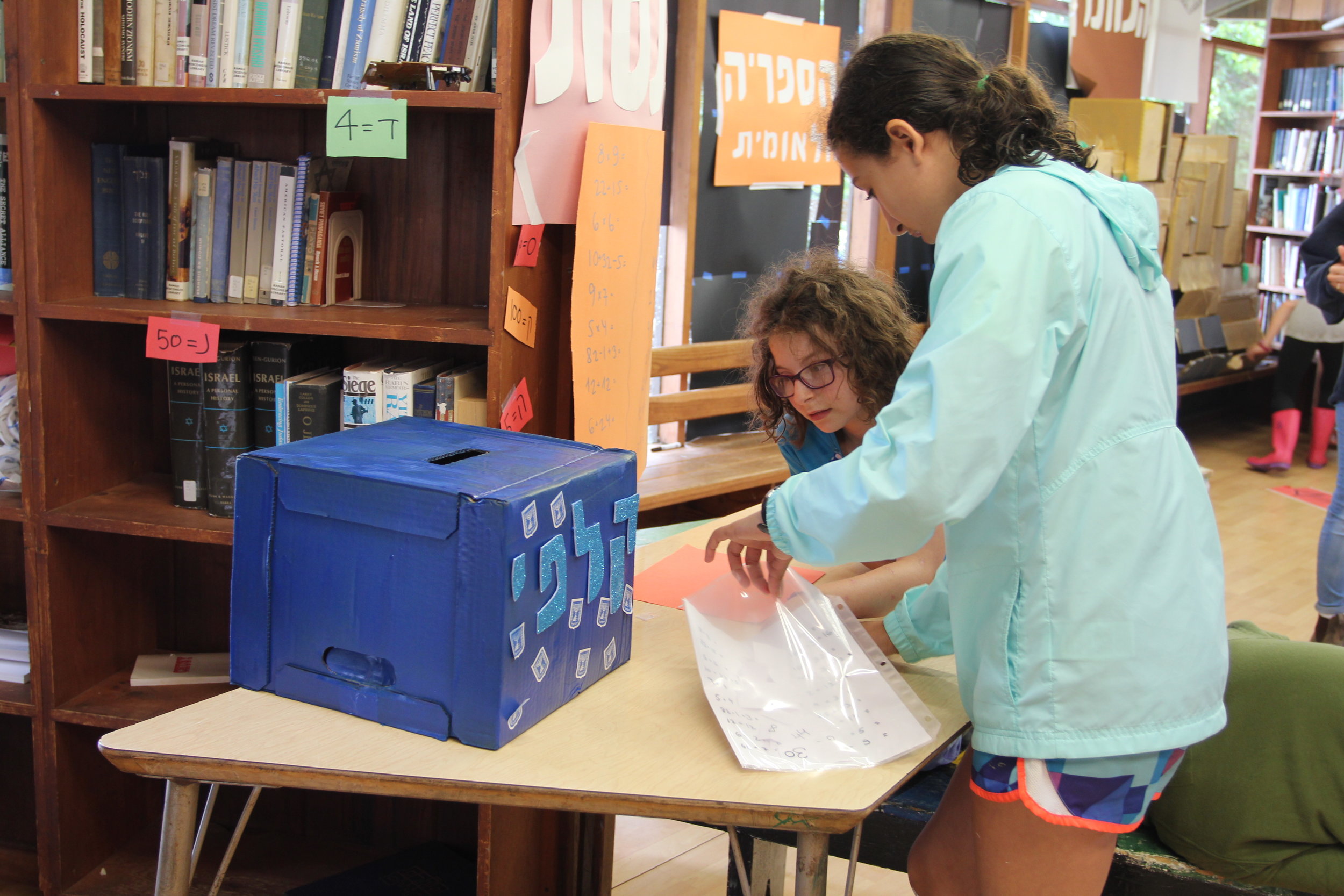When I led a training seminar for our camp Hebrew teachers in Herzliya this spring, I discovered that all the Hebrew teachers on staff this summer share a hobby. We are all fans of “Escape Room Games,” a popular new trend in Europe and Israel.
What happens in an Escape Room? A group comes into a room and is given a task, like solving a mystery. The mystery needs to be solved within a limited amount of time by finding clues around the room and deciphering codes.
In Herzliya we brainstormed about creating an Escape Room at camp and this week, thank God, we succeeded in making it happen with the help of the Solelim and Shoafim!
The great mystery in the Escape Room created by our Hebrew staff was: Where is the olive oil from the Temple?
Famous Jerusalem sites were scattered around the room. Campers walked in the Mahane Yehuda market and had to find fruit and vegetables hiding in boxes. They passed the windmill in Yemin Moshe and saw that there was a lock with a code hidden behind it. Then went to the Teddy Stadium where they found their Zimriya song in pieces and they needed to assemble it.
The second part of the group toured the National Library and found clues in an edition of the camp’s Hebrew newspaper, the Ivriton, published earlier in the summer. They continued towards the olive oil jar only after all the campers sang the Hanukkah song, Kad Katan, which describes the olive oil jar found by the Maccabees.
The campers enjoyed every minute in the Escape Room and the teachers loved seeing their students having so much fun.
This Escape Room adventure was the final Hebrew class of the summer for these campers. It was a great way of wrapping up their units on Jerusalem and other places in Israel, Israeli food, Israeli children’s songs and lots of educational games.
As one camper in Solelim said, “I’m going to tell everyone at home that learning Hebrew can be fun and interesting!”
I want to thank the wonderful Hebrew teachers who worked with these campers and congratulate them on this great program: Yael, Ayelet, Mayan, Inbal, Zahava, Inbar, Orel and Lital.






